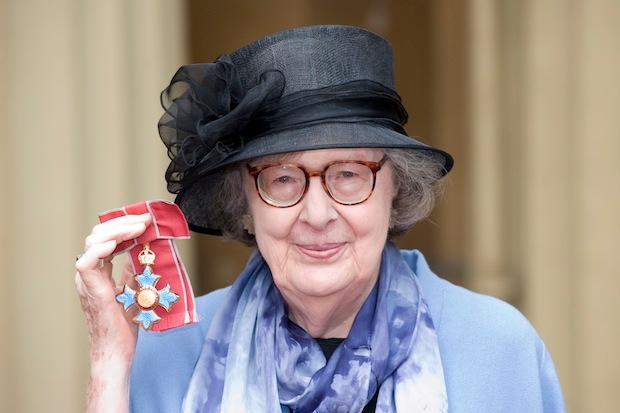My surgery has been calling in all those over 75 for a special session with their doctor — a sort of old-age MOT. I came out of mine pretty well, I thought: I could remember the name of the Prime Minister, blood pressure excellent, spark plugs need cleaning, windscreen wipers ineffective, bodywork showing signs of wear. But not too bad for 80. Gerontologist Tom Kirkwood, in his book Time of Our Lives, gives a clinical but excellent and entirely comprehensible account of what we should expect, and what can and cannot be done about it. His study of a group in their mid-eighties found that not one had zero age-related disease, and most had four or five. We take our pick: hips, knees, macular degeneration and so forth. Friends and acquaintances of my age can serve up the full range, and I warm most to those who are making a good fist of it. Complain — yes, fine. Make a fuss about getting all the alleviation that’s possible. But no whingeing as though uniquely afflicted. Sidelined? Well, up to a point, and that’s in the nature of things. You no longer want to be out there taking the flak. I have a beady eye out for ageism, but don’t much come across it. And consider the compensations. You are sure of a seat on the bus, and if nobody cedes one there will be a reproachful voice announcing: ‘I think this lady would like a seat.’ And you can play the age card when confronted with anything you don’t want to do.
The surgery is multicultural and polyglot. The touchscreen on which you can sign yourself in offers instructions in Russian, Polish, Spanish, French, Arabic, Turkish, Somali — and something I can’t identify. Romanian or Bulgarian? Are we that up to date? The names called are wonderfully diverse; the mundane Anglo-Saxon Jane Smiths come as a slight surprise. I always have the feeling, sitting there, that this room in inner London is reaching out tentacles around the world: I want to know the stories, the ancestries, that have brought everyone here. It is the seven ages of man, too — the old and the young predominating. Plenty of sticks and walkers, small fry whimpering in buggies or rushing up and down. You are asked not to use a mobile phone, but people do — always the younger and sleeker. A man snapping crisp instructions to some office minion; a girl recounting a brawl with her boyfriend, in not enough of an undertone.
I am a pushover for television wildlife programmes. David Attenborough for preference, but almost anything will do. I am an authority on grizzly bear behaviour, on tiger conservation, on emperor penguins, manatees, beavers, you name it. And a devotee, of course, of Springwatch, Autumnwatch, Winterwatch. They have eliminated all that silly stuff apparently aimed at ten-year-olds, though there is still a bit too much frenetic banter between the presenters. But Chris Packham brings a soberly scientific approach, though I can’t go all the way with him in his passion for urban foxes. My local pair, in deepest Islington, spent sunny afternoons last summer lounging on my euphorbia, with disastrous effect. I have replanted with ground cover roses; let’s see if that will deter. Though I do have a sneaking weakness for the foxes; there’s a certain bravura about a wild animal making a living in the wrong place.
Simon Reade has adapted my novel Moon Tiger for the stage — a touring production by the Theatre Royal, Bath. We went to the opening night and I sat there amazed. How on earth do you turn a novel into a play? I had wondered. Well, with great skill and imagination, if you are Simon Reade. The story, the language, the atmosphere — all up there on the stage, superbly directed by Stephen Unwin, and the central figure, Claudia, made manifest by Jane Asher. She is magnificent — on stage throughout, slipping back and forth between young Claudia, middle-aged Claudia, old Claudia, without even a change of costume. She is supported by a small cast, four of them each playing three or four different characters. For me it was the oddest experience to sit in the red plush splendour of the Theatre Royal watching this metamorphosis of a book published in 1987, so that it feels as though someone else wrote it. Like the film of a book, the play of a book is not just a reflection but a creative endeavour all of its own. Moon Tiger the play has had rapturous reviews on tour — fingers crossed that it will at some point come to one of the London theatres.
My roots are in west Somerset. We are used to rain in those parts. I was around for the disaster of Lynmouth and Lynton, in 1952, drowned by rain from the sodden moor. And some years later, our nearest village, Roadwater, was completely flooded by the local stream, barely a river. Something was done in both places, and this has never happened again. If they could fix those two upland waterways, surely they can meet the rather flatter challenge of the Parrett and the Somerset Levels.






Comments